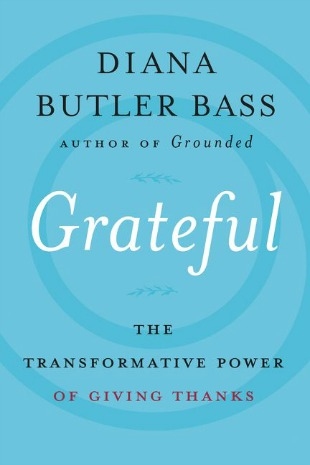According to polls measuring the impact of gratitude, nearly 80 percent of people surveyed say they feel deep gratitude at least once a week. In the opening pages of this consistently revealing work, Diana Butler Bass, the award-winning author of ten books on American religion, confesses she had a hard time with this spiritual practice from childhood right on through adulthood. She came up short when she compared herself to Oprah Winfrey and her guests who talked about the transformative dimensions of noting three things a day they were grateful for in a gratitude journal.
Gratitude as a spiritual path has proved to be rewarding for both religious and non-religious people. Trying to come to her own fresh appreciation of it, the author shares the connections between well-being, physical health, and gratitude. Robert Emmons, one of the world's leading researchers on the subject, has identified its positive role in promoting regular heart rhythms, rebalancing hormones, reducing stress, increasing relaxation, and promoting resistance to common illness.
Bass, after not experiencing much uplift from keeping a gratitude journal, discovers the wisdom of Brother David Steindl-Rast, a Benedictine monk who has shed much light on this spiritual practice. He has written, "Ninety-nine percent of the time we have an opportunity to be grateful for something. We just don't notice it. We go through our lives in a daze."
By a miracle of grace, Bass finally perks up and finds nurturing and meaning in journaling regularly about her blessings. She discovers that when you look for things to be grateful for, you discover that gratitude begets more gratitude. It enables her to open her heart more, gives her a new perspective on her days, and creates "a fabric of appreciation and awareness that forms the story of our lives."
As a woman and a mother, Bass embraces the fact that gratitude focuses on relationships. It is about bringing individuals together in unity and diversity, in peace and fellowship. This elevation of togetherness happens at weddings, reunions, sports events, and other festive occasions. Bass also includes in this list political conventions as "theatres of play and communal exuberance" and an inauguration as "a festival of thanksgiving for democracy and the nonviolent transfer of power."
In the closing chapters, Bass with great clarity and feeling points out how she has come to see gratitude as inherently social: "it always connects us as individuals to others." She describes her experiences at the Women's March on January 21, 2017, and what she learned there about what it means to live in a grateful society. Politics involves a series of expanding circles from family and close friends to neighbors and colleagues to global citizenship as "the whole human family in a shared destiny."
In the epilogue, Bass admits that her own disappointment and distress over what was happening in the United States after Donald Trump's election made writing a book about gratitude challenging. She came to realize that "gratitude is not a psychological or political panacea . . . that denies pain or overlooks injustice . . . these things are all real. They do not go away. Gratitude, however, invalidates the false narrative that these things are the sum total of human existence, that despair is the last word. Gratitude gives us a new story."
Best of all, the revved up author provides a series of ethical actions to bring gratitude truly alive in our everyday lives, making it both a personal and a public practice.
